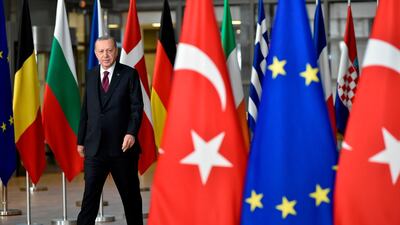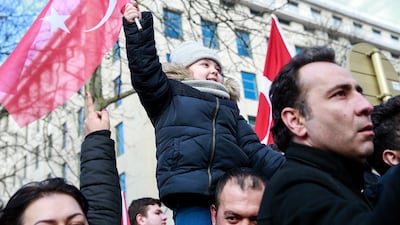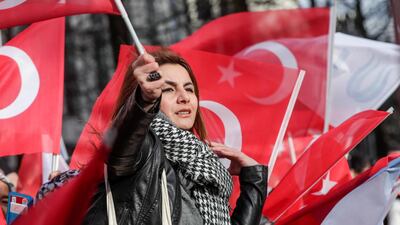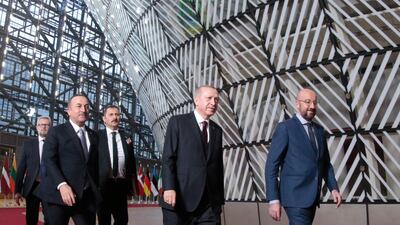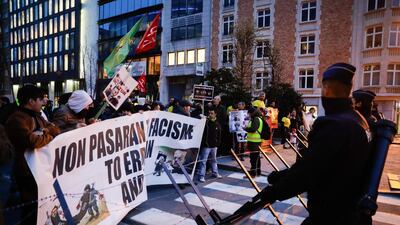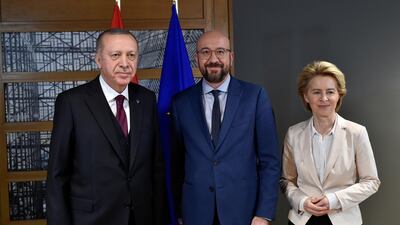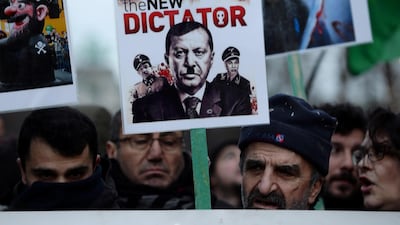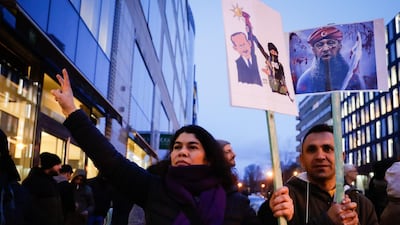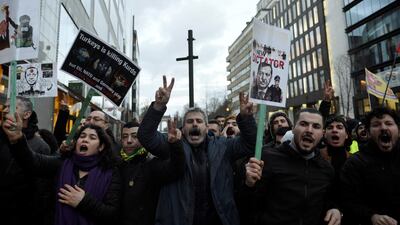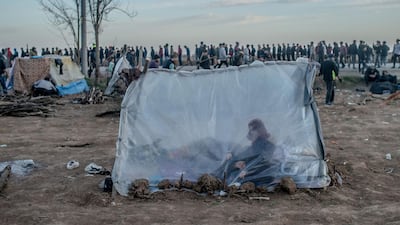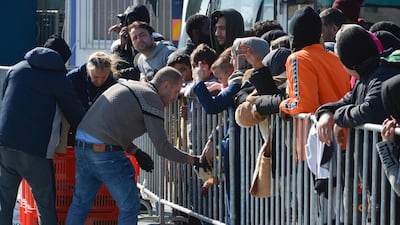Turkey hopes a new deal with the EU on refugees will be agreed before the end of this month after a row between the two sides led to thousands of migrants attempting to make their way into Europe.
Turkish President Recep Tayyip Erdogan said on Tuesday that he was due to meet Germany’s Chancellor Angela Merkel, French leader Emmanuel Macron and possibly UK Prime Minister Boris Johnson at a summit in Istanbul on March 17.
He said Turkey would not be closing its western border for the time being, instead repeating a previous comment that Greece must open its own gates.
Mr Erdogan made the remarks to journalists on his way back from Brussels where he had met senior EU officials to discuss the crisis at Turkey's border with Greece.
The meeting followed a decision by Ankara last month to stop preventing migrants from crossing over its western border with Greece. Around 30,000 migrants attempted to get into the EU in just over one week.
Greece and the EU sent reinforcements to the border, which saw clashes as security forces used tear gas to hold back migrants trying to cross.
In an interview with Anadolu news agency, Turkish foreign minister Mevlut Cavusoglu said a previous deal struck between Ankara and Brussels to prevent migrants trying to get into the bloc needed to be updated in light of a crisis in Idlib, northern Syria.
"If we are to come up with a roadmap with the EU, we expect them to be sincere," Mr Cavusoglu said.
"It is not only about keeping migrants in return for more money," he said. “It comprises several issues from visa-free travel to ensuring the voluntary return of refugees.”
Mr Cavusoglu said a new agreement could be ratified at an EU leaders’ summit on March 26.
"We are ready for constructive work," he said.
Turkey and the EU agreed a deal in 2016, which saw Brussels offer 6 billion euros to help look after the almost 4 million Syrian refugees living in the country.
Ankara says it has not received all the money, and that other pledges on improved visa and trade rules have not been met. The EU insists it is disbursing the funds.
The Turkish government is also frustrated with the EU for what it sees as not enough support for its military efforts in Syria, where its troops are fighting against Russian-backed forces of the Syrian regime. The decision to open its western border came after at least 33 Turkish soldiers were killed by regime forces.
Mr Erdogan left his meeting in Brussels on Monday without appearing at a joint news conference.
After the talks, European Commission President Ursula von der Leyen told reporters: "Clearly we do have our disagreements, but we have spoken plainly and we have spoken openly to each other."
However, Ms von der Leyen has accused Turkey of politicising the border to gain EU concessions.
She said the 2016 deal “remains valid and we need to implement missing elements”.
The EU has agreed to take in up to 1,500 child refugees currently living in overcrowded camps on the Greek islands in the Aegean Sea.
Berlin will take in 80 to 100 children from the refugee camps, a German official said on Tuesday, with the focus on minors who are sick or younger than 14 and unaccompanied.
Greece, which is struggling to accommodate thousands of asylum-seekers, was warned by fellow EU member Bulgaria not to build a refugee camp on its border.
Bulgaria's defence minister Krasimir Karakachanov said the plans were “unreasonable” and would create “additional tensions”.
